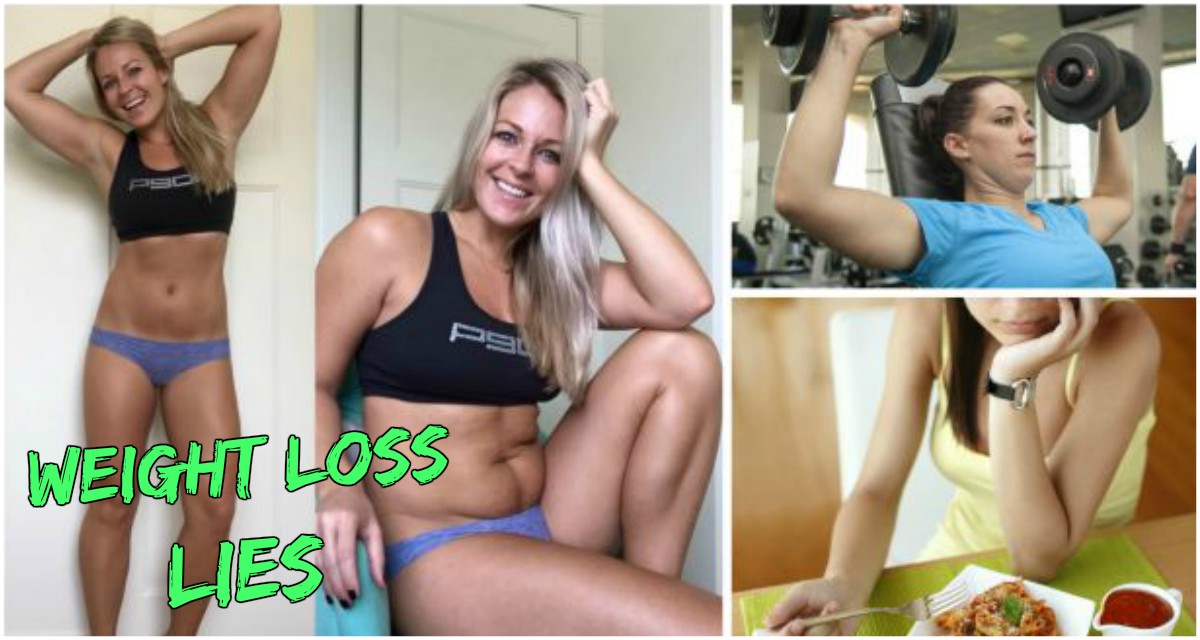The Two Biggest Weight Loss MYTHS and Why They're Absolute NONSENSE
Everywhere we look, it seems, we're battered with yet another myth about how to lose weight. Here are two of the most widely circulated and why they're 100% false.

Number 1: "If you want to lose weight, you have to eat very little."
If you do a bit of research on the internet about this subject, you learn pretty quickly: you can't lose weight simply by eating very little. Of course, drastically reducing your portions can cause some loss of weight in certain cases, but usually this is very unhealthy for your body and the wrong kind of weight loss. Instead of feeding your body the right foods, you simply eat less of both the bad and the good.
And that's the problem: many women and men reduce their food intake and think this is a totally safe way of shedding some pounds. But not only does this strategy make you unhappy, it also leaves you deprived and energyless.
Not to mention, everyone loses (and gains!) weight differently. For some people, extreme calorie cutting doesn't have much of an effect at all. Then they're just left at the end of a 1800-calorie day wondering why they feel absolutely horrible and haven't lost a single pound.
Our body gives us signals. When we feel hungry, it's normally because we simply haven't eaten enough. We can condition ourselves to deal with hunger, especially if we're trying to adjust from a lavish diet (after a vacation, for example) back to a normal, healthy-portioned one. But still, the energy demand of your body is usually pretty stable and does not change much, as it depends on various factors such as body size, weight, how active you are, and your overall life situation.
If you're changing your diet and replacing greasy and sugary foods with low-calorie food, you'll need to eat more of the low-calorie food in order to meet your daily needs.
Number 2: "Women who work out build up too many muscles and look too masculine"
Many women are too scared to even venture into the strength training section of the gym because they're afraid that if they lift weights, they'll end up looking like men and have a muscular, masculine body. But this is completely untrue!
You can't become a bodybuilder by accident, and you won't just one day look in the mirror and realize you look like a professional weightlifter. That takes hours of hard and targeted efforts, combined with a specific dietary change, and it usually requires 4-5 years or more to reach that kind of stature. Remember, too, that women produce significantly less testosterone than men, and this is the hormone that plays a decisive role in muscle building.
And one last thing: even super-in-shape, trained fitness models and bodybuilders are not perfect. They're not spared either from things like cellulite, stretch marks, and belly rolls. Take, for example, this picture (and inspiring message) of personal trainer Anna Victoria, where she shows her ultra-fit body in a sitting position – including a bit of a belly roll! ;-)
We'd just like to say: thank you for this refreshing honesty!
More steaming articles
 25 fast beef dinners you can't mess up
25 fast beef dinners you can't mess up
 50 ways to make the most of summer...
50 ways to make the most of summer...
 10 habits that will make you a better...
10 habits that will make you a better...
Chef Tips and Tricks
Your parents told you that scoffing your food was bad, and now science has confirmed it!
Enjoy this video... slowly!


Comment on this article